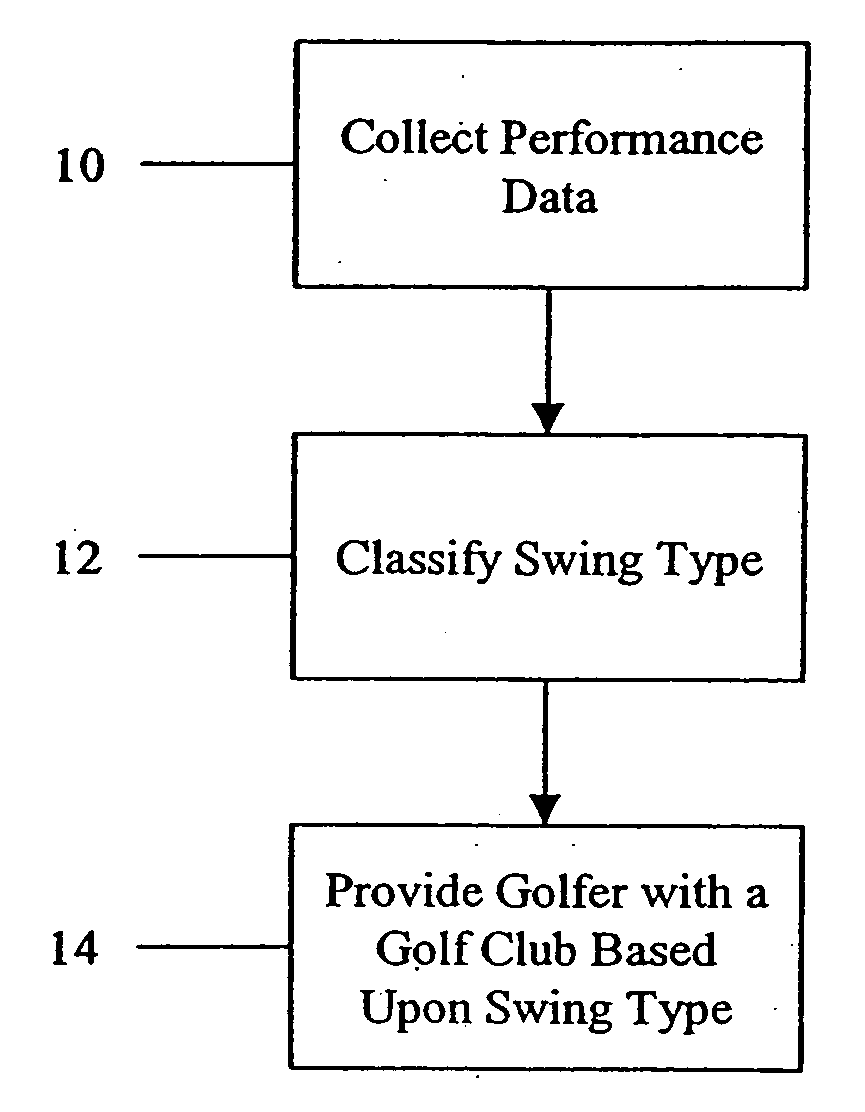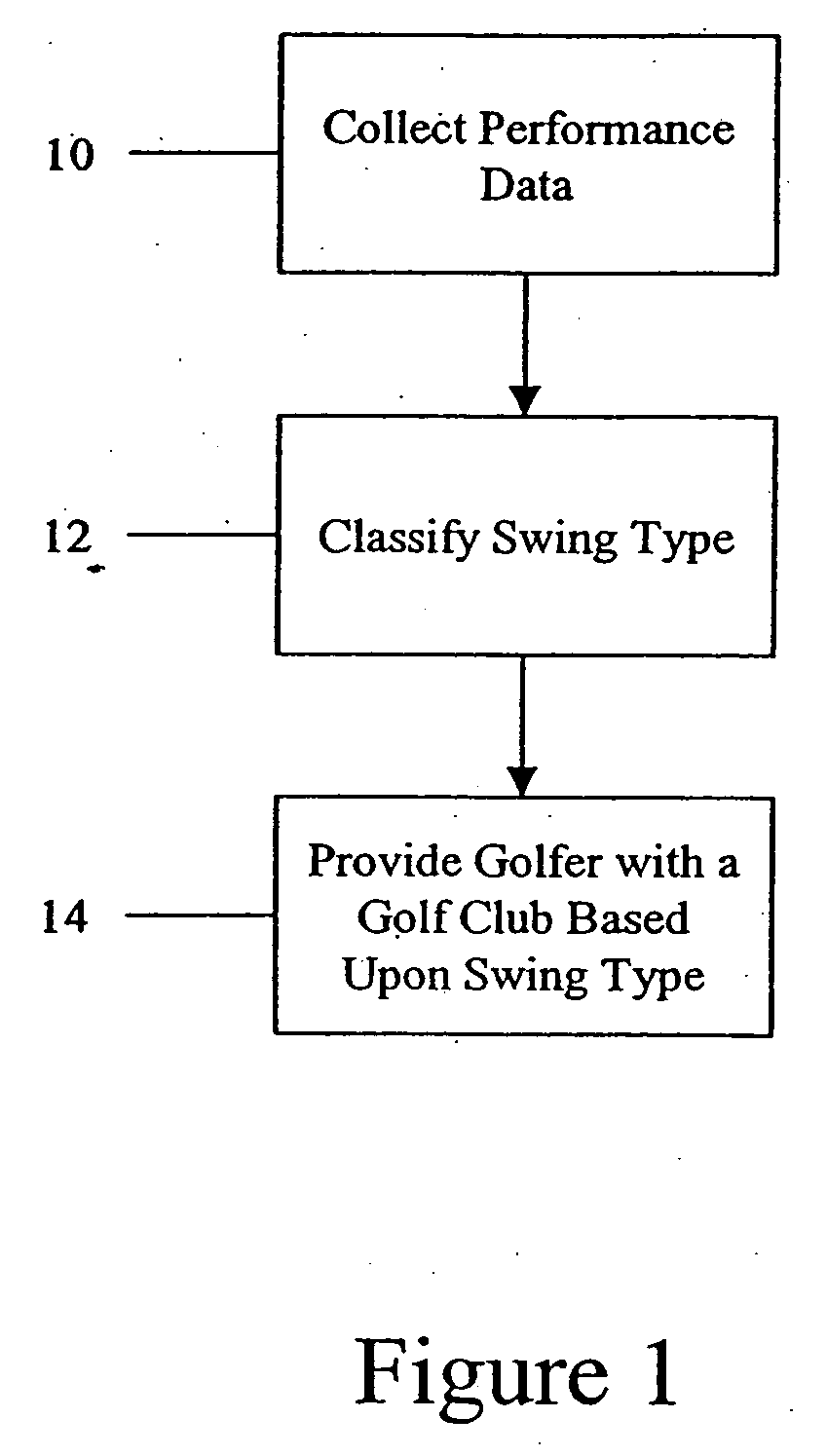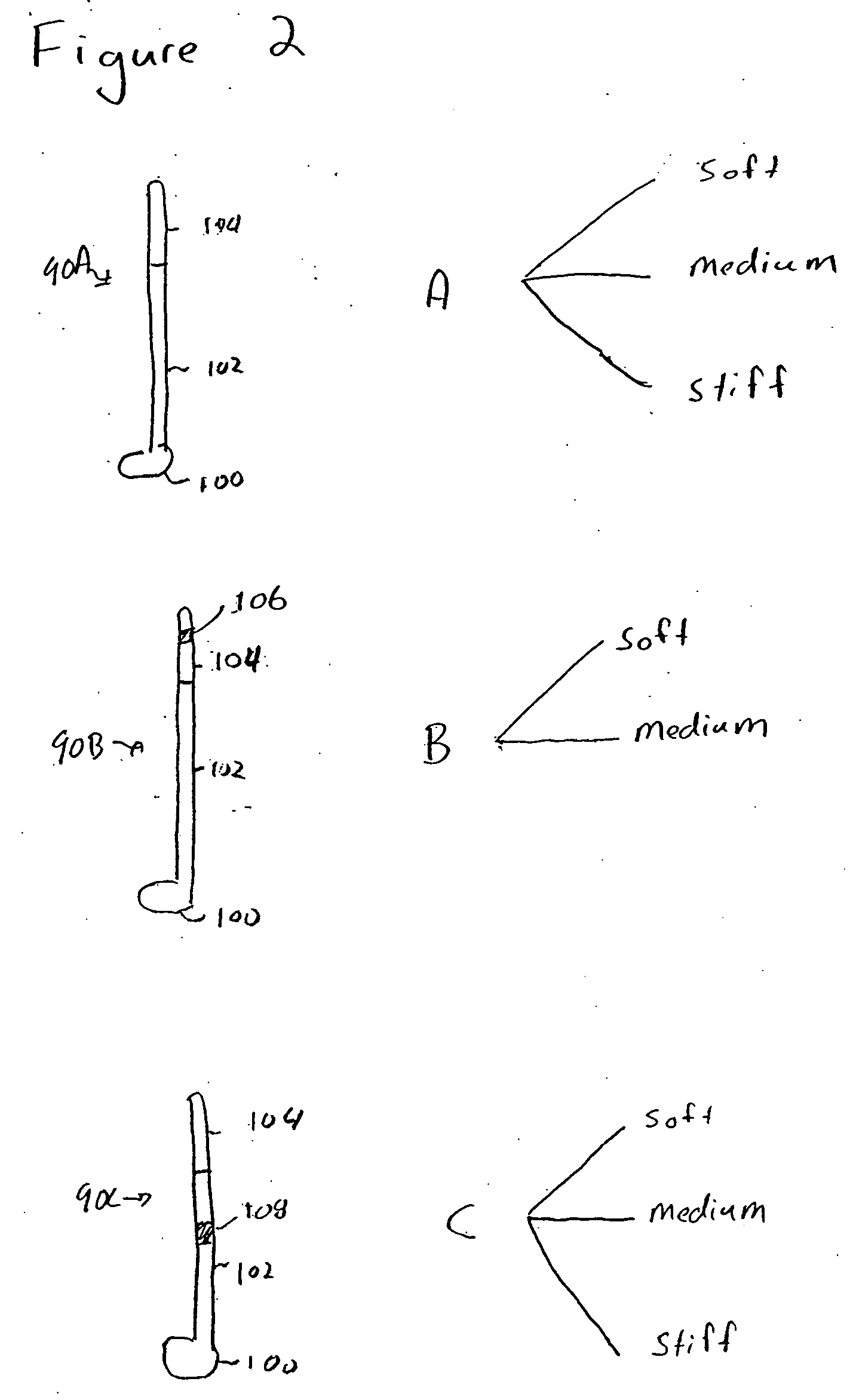Method for matching a golfer with a particular club style
a golfer and golf club technology, applied in the field of golf club matching methods, can solve the problems of high subjectiveness, inability to accurately match or repeat golf clubs, and difficulty for golfers to select golf clubs that properly match their or their golf, and achieve the effect of improving the match
- Summary
- Abstract
- Description
- Claims
- Application Information
AI Technical Summary
Benefits of technology
Problems solved by technology
Method used
Image
Examples
Embodiment Construction
[0028] The present invention relates generally to methods for matching a golfer with an optimal golf club selected from a group of golf clubs having distinct physical characteristics or styles. Specifically, with reference to FIG. 1, certain “performance parameters” of a golfer's golf swing are collected (operational block 10) by, at least in part, taking certain objective measurements of a golfer's golf swing. These performance parameters are used to classify the golfer's swing into a swing type, as represented by operational block 12. The golfer then is provided with a golf club based upon the golfer's swing type (operational block 14). Preferably, the loft and lie of the selected golf club are also adjusted to achieve the desired trajectory. One of the advantages of the present invention is that the performance parameters are based upon objective data. Therefore, as compared to prior art methods which rely upon the subjective observations of the golfer or an expert, the present i...
PUM
 Login to View More
Login to View More Abstract
Description
Claims
Application Information
 Login to View More
Login to View More - R&D
- Intellectual Property
- Life Sciences
- Materials
- Tech Scout
- Unparalleled Data Quality
- Higher Quality Content
- 60% Fewer Hallucinations
Browse by: Latest US Patents, China's latest patents, Technical Efficacy Thesaurus, Application Domain, Technology Topic, Popular Technical Reports.
© 2025 PatSnap. All rights reserved.Legal|Privacy policy|Modern Slavery Act Transparency Statement|Sitemap|About US| Contact US: help@patsnap.com



